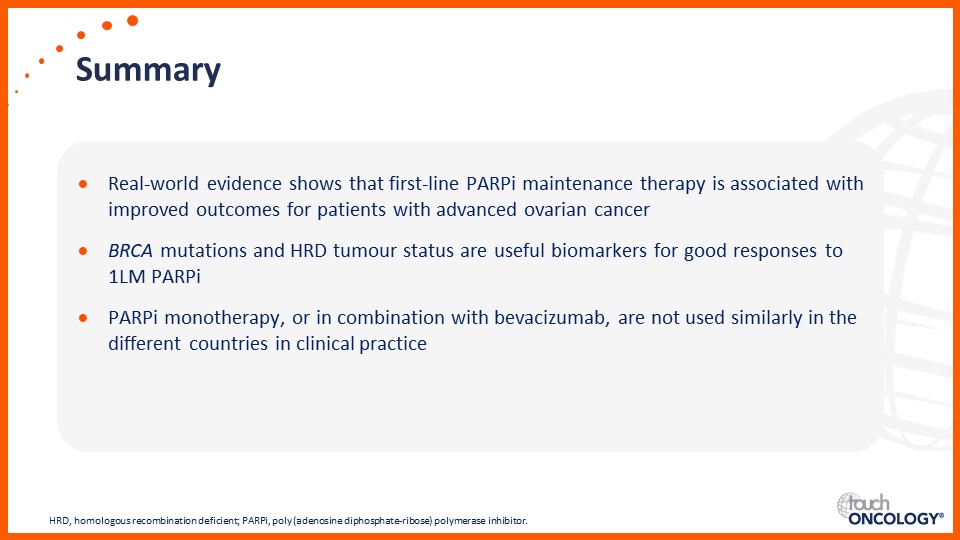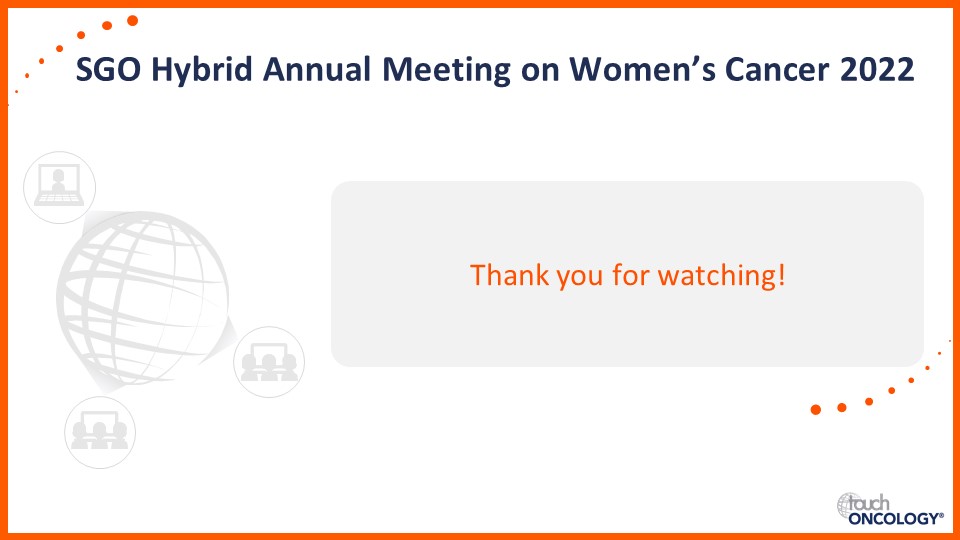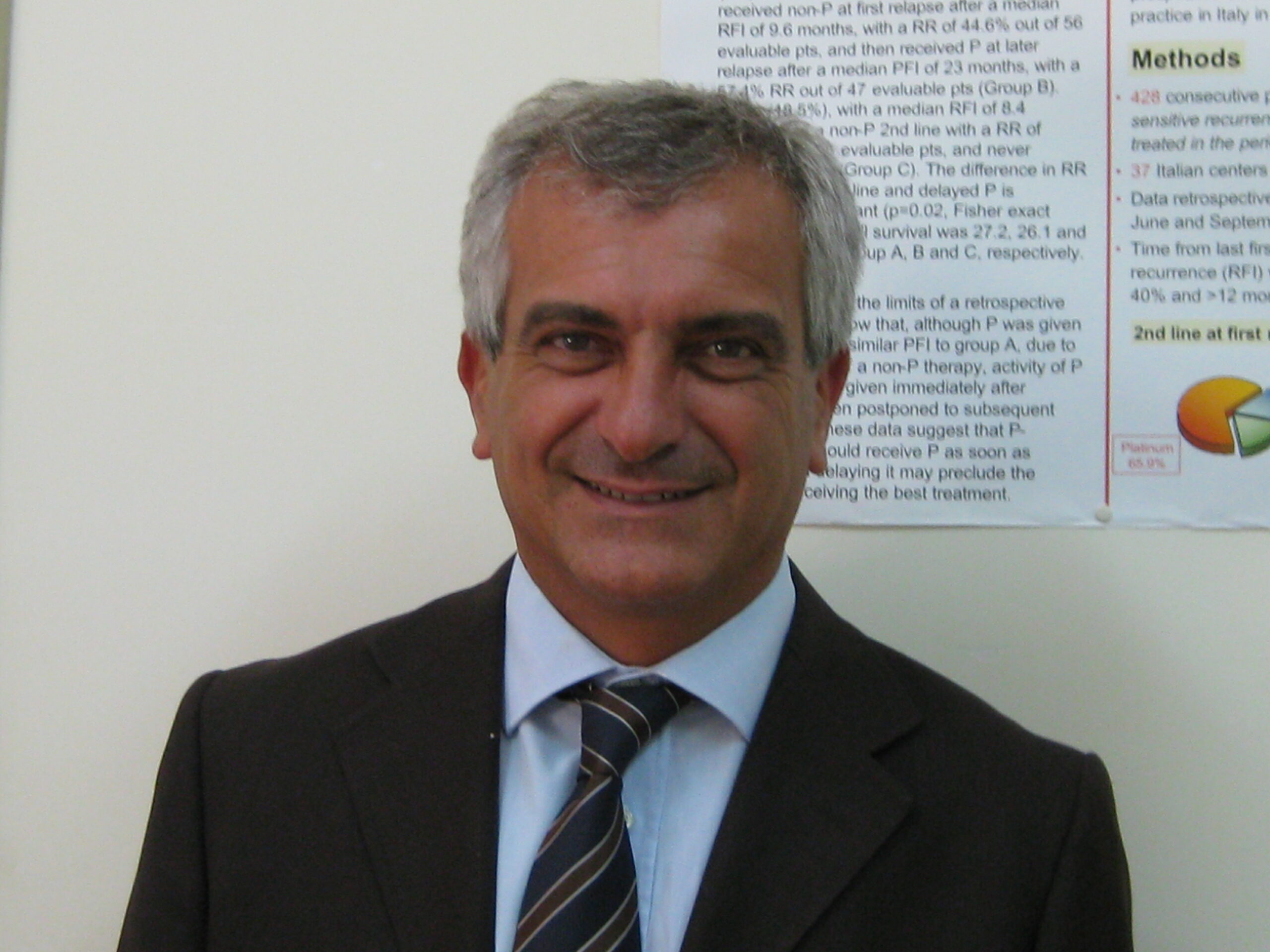touchCONGRESS PARP inhibitors as first-line maintenance therapy in ovarian cancer: Using data from SGO 2022 to inform clinical best practice
Watch this two-part activity exploring recent developments in the use of PARP inhibitors as first-line maintenance therapy in ovarian cancer. Filmed following the SGO Hybrid Annual Meeting on Women’s Cancer 2022.
Part 1: Watch gynaecological cancer expert Prof. Isabelle Ray-Coquard review key data from the SGO Virtual Annual Meeting 2021 Watch Now
Part 2: Choose from leading experts who discuss what these data may mean for global and regional practice Select An Interview
Introduction
Latest efficacy data on PARP inhibitors in the first-line maintenance setting
Latest safety data on PARP inhibitors in the first-line maintenance setting
How could the latest data impact the use of PARP inhibitors in the first-line maintenance treatment of ovarian cancer in clinical practice?
Dr Antonio González-Martín considers the latest data on PARP inhibitors as first-line maintenance therapy in advanced ovarian cancer, presented at SGO 2022.
Dr Sandro Pignata considers the latest data on PARP inhibitors as first-line maintenance therapy in advanced ovarian cancer, presented at SGO 2022.
Prof. Isabelle Ray-Coquard considers the latest data on PARP inhibitors as first-line maintenance therapy in advanced ovarian cancer, presented at SGO 2022.
Please Select A Video:
Overview & Learning Objectives
Overview
Get an update on the use of PARP inhibitors as first-line maintenance treatment for ovarian cancer in this two-part activity. Filmed following the SGO Hybrid Annual Meeting on Women’s Cancer 2022.
Learning Objectives
- Describe efficacy data for PARP inhibitors in the first-line maintenance treatment of ovarian cancer
- Recall the safety data for PARP inhibitors in the first-line maintenance treatment of ovarian cancer
- Evaluate how the latest data may impact the use of PARP inhibitors as first-line maintenance therapy in clinical practice

Register to touchONCOLOGY for FREE
- Peer-reviewed journals and expert opinions
- Interactive CME and e-learning modules
- Video conference highlights






































